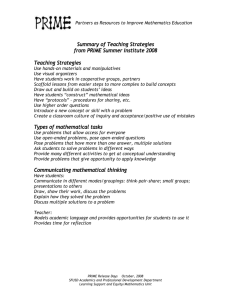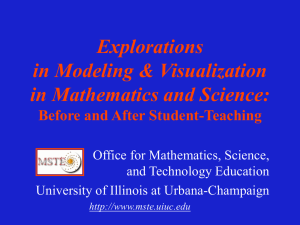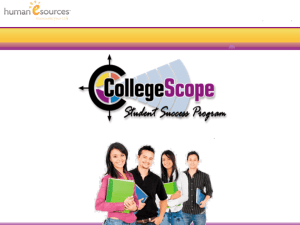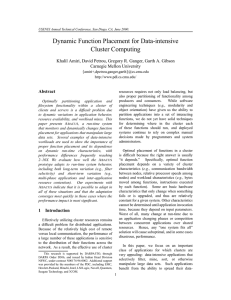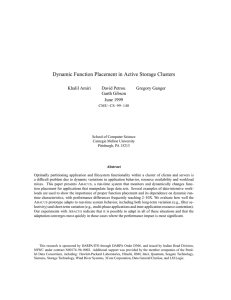Mathematics of Medicine - STEM
advertisement
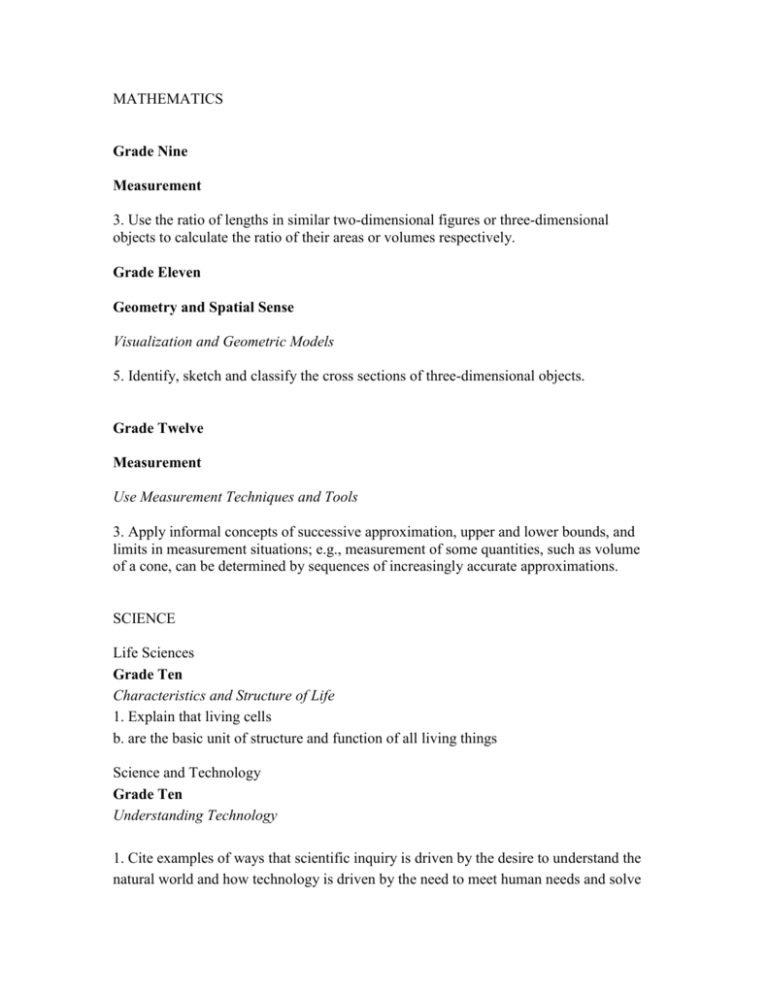
MATHEMATICS Grade Nine Measurement 3. Use the ratio of lengths in similar two-dimensional figures or three-dimensional objects to calculate the ratio of their areas or volumes respectively. Grade Eleven Geometry and Spatial Sense Visualization and Geometric Models 5. Identify, sketch and classify the cross sections of three-dimensional objects. Grade Twelve Measurement Use Measurement Techniques and Tools 3. Apply informal concepts of successive approximation, upper and lower bounds, and limits in measurement situations; e.g., measurement of some quantities, such as volume of a cone, can be determined by sequences of increasingly accurate approximations. SCIENCE Life Sciences Grade Ten Characteristics and Structure of Life 1. Explain that living cells b. are the basic unit of structure and function of all living things Science and Technology Grade Ten Understanding Technology 1. Cite examples of ways that scientific inquiry is driven by the desire to understand the natural world and how technology is driven by the need to meet human needs and solve human problems. 2. Describe examples of scientific advances and emerging technologies and how they may impact society. Full Summary Created by David Lawrence 21 July 07 7:20 p.m. Updated by David Lawrence 21 July 07 7:20 p.m. Making Connections: Resources for K-12 Service Learning and Experiential Learning in STEM Disciplines Website URL http://www.mste.uiuc.edu/dildine/cancer/cancer.html Target Grade Level: 9-12 mathematics students with an emphasis on biology Project Overview: This lesson concentration is within the geometry content standard. Students analyze, interpret, and discuss three dimensional cells. Students will sophisticated mathematical formulas and concepts to understand the mathematics involved within the medical sciences. Students will implement the ratio r = (p^2) as an indicator of what cell structure appears to be. Anticipated Time Required 4-6 block class periods Project Structure Group Suggested Community Partners Miami Valley Hospital Good Samaritan Hospital Kettering Medical Center Supplies Needed Java Files Ti-84 Cost No additional supplies Project Implementation Cooperative teams of 2-3 students will complete all mathematical calculations and extrapolate results to medial simulations that illuminate cell structure. Student Assessment Student assessment will take the form of a group presentation that uses the conceptual formulas as a basis for showing the mathematical applications necessary to illuminate 3D cell structures Career Connections: 1. Using the latest in nanotechnology, engineers build tiny ingestible sensors that circulate with the blood while sending information to a computer. 2. Inexpensive electron microscopes and educational software are developed for science education in public schools. Additional Resources: Ackerman, L., & Gose, E. (1972). Breast Lesion Classification by Computer and Xeroradiograph. Cancer, 30(1), 1025-1035. Discusses the ratio of perimeter^2/area and the cellular structure most likely represented Bacus, J. W., & Gose, E. E. (1972). Leukocyte Pattern Recognition. IEEE Transactions on Systems, Man, and Cybernetics, SMC-2(4), 513-526. Discusses more about pattern recognition and image analysis






